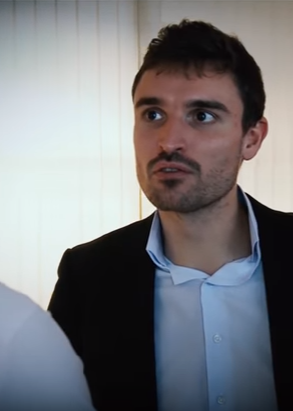Aurélien joined IRT SystemX in 2013 to write a thesis on optimization of a one-way automobile share system with electrical vehicles. He discusses his doctoral studies in the MIC (Modeling, interoperability, Cooperation) project here, and his supervision by the Université Pierre et Marie Curie and Renault.
What is the subject of your thesis?
 My thesis is on design of carsharing systems from the viewpoint of an operator. In practical terms, three aspects were examined in my work, linked with the team of the MIC project.
My thesis is on design of carsharing systems from the viewpoint of an operator. In practical terms, three aspects were examined in my work, linked with the team of the MIC project.
First, the question of optimal sizing. An carsharing system service that is to be located in an urban area begs a number of questions: How do we decide what size station we offer? How many vehicles should we park and how can they be shared out in the system? What strategy should determine how to relocate vehicles during the day? So first of all we offered and evaluated mathematical models that answered all these questions, the purpose being to maximize the overall efficacy of the system (meet as many demands as possible).
The second important aspect of my work concerned station locations. We imagined that even before building an carsharing system, we could identify potential operating sites. In fact, as is often the way in France, operators don’t get a choice. So then we selected the subset of the most relevant locations that would offer the best service quality. Accordingly, we based our analysis on an a priori estimation of potential demand in carsharing system. The calculation was based either on a random generator developed during our work, or on a simulation calculation carried out by other partners in the MIC project (Artelys and The CoSMo Company).
Finally, we looked into using electrical vehicles, (with autonomy constraints due to limited battery capacity) and the power provided by station charging outlets. The problems we examined included the following issues: are current battery capacities properly sized for use of vehicles in this auto-sharing context? Does the electrical charging power of each station play a major role in the overall sizing of the system? We offered answers to these questions by proposing another formalism that took account of these energy-linked aspects. More particularly, we discovered that today, in existing systems, the batteries are oversized. Existing carsharing systems could work perfectly well with batteries half the size: food for thought in terms of Smart Cities and other subjects linked to intelligent city design!
What will you remember about your doctoral studies?
I was attracted by the work environment at SystemX, more especially the human aspect. The IRT offered me an academic view of my work since I was able to exchange with other PhD students and research engineers. We would make regular presentations of our work in weekly meetings or at events open to the public (Future@SystemX, MIC@SystemX etc). The project team and visitors often gave us enlightening feedback.
Can you tell us your best memory of SystemX?
In terms of the project, I would choose a group of events: offsite visits to industrial partners such as Renault, Alstom or the French railways SNCF, or visits to places like Proto 204. All these times when the project steps out of its day to day environment allow its members to work differently and offer considerable openings for further reflection.
What are your plans for the future?
Next year my projects will be exclusively personal: I would like to ride a bike from France to Nepal. On my return I intend to move near the Alps. In terms of professional goals, I am still thinking: I would find a mixture of research and IT perfect. But I must keep it all in the air for the moment, otherwise the journey would undoubtedly lose its charm!
More about Aurélien Carlier
Thesis: « Optimisation d’un écosystème de transport multimodal pour les grandes agglomérations urbaines » (“Optimization of a multimodal transport system for large urban areas”) (Renault/Université Pierre et Marie Curie, IT Laboratory at Université Paris 6 – LIP6).
R&D project: MIC (Modeling – Interoperability – Cooperation)
Qualification: Holds a Master 2 in operational research (Université catholique de l’Ouest – IMA, applied mathematics)


![[Position paper] Without trust, AI will remain an industrial mirage](https://www.irt-systemx.fr/wp-content/uploads/2025/02/shutterstock_2374437797-2-scaled.jpg)
